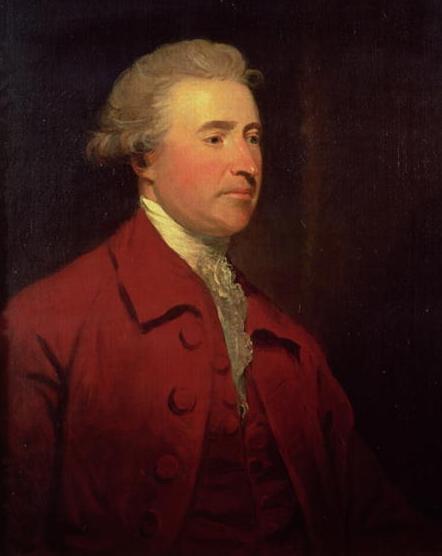Edmund Burke słynne cytaty
Źródło: E. Burke, „Refleksje i dane o nieurodzaju”, [w:] Idem, O duchu i naturze rewolucji…, s. 237
„Dla triumfu zła potrzeba tylko, żeby dobrzy ludzie nic nie robili.”
przypisywane; prawdopodobnie jest to parafraza innych słów Burke'a.
Inne wersje:
Aby zło zatriumfowało, wystarczy, by dobry człowiek niczego nie robił.
Jedna myśl o tym żeby zatryumfować nad złem, jest dla dobrego człowieka niczym.
Jedyną rzeczą potrzebną złu do zwycięstwa jest bierność dobrych ludzi.
Zło zwycięża, gdy dobrzy ludzie nic nie robią.
Źródło: Jarosław Gronert, Astrologia od początku, Pabianice 2007, s. 30.
Rozważania o rewolucji we Francji
Edmund Burke cytaty
„Żaden Europejczyk nie może stać się całkowitym uchodźcą w żadnej części Europy.”
Źródło: „Pressje”, wyd. 6–7, 2006, s. 155.
„Wolność bez mądrości i cnoty? To jest zło największe z możliwych.”
Rozważania o rewolucji we Francji
Źródło: „Zdanie”, wydania 70–81, Krakowskie Wydawnictwo Prasowe RSW Prasa – Książka – Ruch, Kraków 1988.
Źródło: Dociekania filozoficzne o pochodzeniu naszych idei wzniosłości i piękna, Warszawa 1968, s. 14, tłum. P. Graff.
Źródło: Acta philologica, wyd. 6, Wydawnictwa Uniwersytetu Warszawskiego, Warszawa 1974, s. 209.
O książce Teoria uczuć moralnych Adama Smitha
Źródło: E. Burke, Correspondence, cyt. za: R. Rydz, Edmund Burke na ścieżkach wolności, op. cit. s. 186.
Źródło: Edmund Burke, Appeal from the New to the Old Whigs, 1791.
Źródło: Louis L. Bredvold, Ralph G. Ross, Ann Arbor, The Philosophy of Edmund Burke, 1960, s. 60.
O relacjach między władzą państwa a wolnością obywateli.
Rozważania o rewolucji we Francji
Rozważania o rewolucji we Francji
Rozważania o rewolucji we Francji
Rozważania o rewolucji we Francji
Rozważania o rewolucji we Francji
„Skłonność do zachowywania i zdolność ulepszania wzięte razem – oto wzór męża stanu.”
Rozważania o rewolucji we Francji
Rozważania o rewolucji we Francji
Edmund Burke: Cytaty po angielsku
Reflections on the Revolution in France (1790)
Reflections on the Revolution in France (1790)
Reflections on the Revolution in France (1790)
Works of Edmund Burke Volume ii, p. 117
Second Speech on Conciliation with America (1775)
First Speech on the Conciliation with America (1774)
“Toleration is good for all, or it is good for none.”
Speech on the Bill for the Relief of Protestant Dissenters (7 March 1773)
1770s
Źródło: An Appeal from the New to the Old Whigs (1791), p. 442
“It is the nature of all greatness not to be exact.”
First Speech on the Conciliation with America (1774)
“Nothing is so fatal to religion as indifference.”
Letter to William Smith, Member of the Irish Parliament (29 January 1795), quoted in R. B. McDowell (ed.), The Correspondence of Edmund Burke, Volume VIII: September 1794–April 1796 (Cambridge University Press, 1969), p. 128
/ 1790s
Volume iii, p. 344
Reflections on the Revolution in France (1790)
Źródło: An Appeal from the New to the Old Whigs (1791), p. 442
Letter to a Member of the National Assembly (1791)
A Letter to a Member of the National Assembly (1791)
“I have in general no very exalted opinion of the virtue of paper government.”
Second Speech on Conciliation with America (1775)
“One that confounds good and evil is an enemy to the good.”
15 February 1788
On the Impeachment of Warren Hastings (1788-1794)
Reflections on the Revolution in France (1790)
“No sound ought to be heard in the church but the healing voice of Christian charity.”
Reflections on the Revolution in France (1790)
“Frugality is founded on the principle that all riches have limits.”
Speech on the Independence of Parliament (1780)
“They defend their errors as if they were defending their inheritance.”
Speech on the Independence of Parliament (1780)
Volume iii, p. 497
Reflections on the Revolution in France (1790)
No. 1, volume v, p. 286
Letters On a Regicide Peace (1796)
Reflections on the Revolution in France (1790)
“A state without the means of some change is without the means of its conservation.”
Reflections on the Revolution in France (1790)
“The first and the simplest emotion which we discover in the human mind is Curiosity.”
Part I Section I
A Philosophical Enquiry into the Origin of Our Ideas of the Sublime and Beautiful (1757)
“The art of substantiating shadows, and of lending existence to nothing.”
Burke's description of poetry, quoted from his conversation in Prior's Life of Burke
Undated
The reference is to Charles Townshend (1725–1767)
First Speech on the Conciliation with America (1774)
Works of Edmund Burke Volume ii, p. 115
Second Speech on Conciliation with America (1775)
“A conscientious man would be cautious how he dealt in blood.”
Letter to the Sheriffs of Bristol (3 April 1777); as published in The Works of the Right Hon. Edmund Burke (1899), vol. 2, p. 206
1770s
